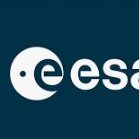Members Can Post Anonymously On This Site
ESA-developed P120C solid rocket motor enters production
-
Similar Topics
-
By European Space Agency
Image: Fit for service: Themis reusable rocket stage demonstrator View the full article
-
By NASA
NASA’s Synthetic Biology Project is turning to the 3D printing experts in the GrabCAD community for ideas and or designs that could lead to the ability to reuse and recycle small scale bioreactors to reduce the mass and volume requirements for deep space missions. Ideally, designs that could be printed using a 3D printer, using recyclable plastics, or a design using cleanable and reusable materials can be created.
Award: $7,000 in total prizes
Open Date: December 2, 2024
Close Date: February 24, 2025
For more information, visit: https://grabcad.com/challenges/3d-printable-bioreactor-for-deep-space-food-production
View the full article
-
By European Space Agency
A pair of spacecraft were launched together today from India with the potential to change the nature of future space missions. ESA’s twin Proba-3 platforms will perform precise formation flying down to a single millimetre, as if they were one single giant spacecraft. To demonstrate their degree of control, the pair will produce artificial solar eclipses in orbit, giving prolonged views of the Sun’s ghostly surrounding atmosphere, the corona.
View the full article
-
By NASA
Peru’s Vice Minister of Defense Policies for Ministry of Defense César Medardo Torres Vega, NASA Administrator Bill Nelson, and Director of Peru’s National Commission for Aerospace Research and Development (CONIDA) Maj. Gen. Roberto Melgar Sheen meet in Lima, Peru, Nov. 14, 2024, where the U.S. and Peru signed a memorandum of understanding agreeing to study a potential sounding rocket campaign.Credit: U.S. Embassy Peru NASA and Peru’s National Commission for Aerospace Research and Development (CONIDA) laid the groundwork for a potential multi-year scientific rocket launch campaign in the South American country.
Both countries signed a non-binding memorandum of understanding Thursday that includes safety training, a joint feasibility study for the potential campaign, and technical assistance for CONIDA on sounding rocket launches. Sounding rockets are small, low-cost rockets that provide suborbital access to space.
“We are excited to look at the possibility of once again launching sounding rockets from Peru,” said NASA Administrator Bill Nelson, who signed on behalf of the United States. “This agreement deepens our international partnership with Peru and the scientific research we conduct because of the country’s location along the magnetic equator. Together we will go farther.”
Maj. Gen. Roberto Melgar Sheen, head of CONIDA, signed on behalf of Peru. Brian Nichols, assistant secretary for Western Hemisphere Affairs for the U.S. State Department, and Stephanie Syptak-Ramnath, U.S. ambassador to Peru, also participated, among other Peruvian officials. The event took place during the week of the Asia-Pacific Economic Cooperation forum beginning Nov. 9 in Lima.
During his visit to Peru, Nelson also discussed the importance of international partnerships and collaboration in space and celebrated Peru’s signing of the Artemis Accords earlier this year.
The United States and Peru have a long history of space cooperation. NASA conducted sounding rocket campaigns at CONIDA’s Punta Lobos launch base in 1975 and 1983.
NASA uses sounding rockets to carry scientific instruments into space on suborbital flights to collect important science data and test prototype instruments. They yield invaluable data that enhance our understanding of Earth’s atmosphere and weather, our solar system, and the universe, and test equipment for deeper space travel.
Understanding our Earth’s atmosphere and how it is influenced by the Sun is crucial to protecting ground and space-based assets that we rely on every day, from the power grid to weather data and even navigation.
For more information about NASA’s international partnerships, visit:
https://www.nasa.gov/oiir
-end-
Meira Bernstein / Elizabeth Shaw
Headquarters, Washington
202-358-1600
meira.b.bernstein@nasa.gov / elizabeth.a.shaw@nasa.gov
Share
Details
Last Updated Nov 14, 2024 EditorJessica TaveauLocationNASA Headquarters Related Terms
Office of International and Interagency Relations (OIIR) Sounding Rockets View the full article
-
-
Check out these Videos



Recommended Posts
Join the conversation
You can post now and register later. If you have an account, sign in now to post with your account.
Note: Your post will require moderator approval before it will be visible.